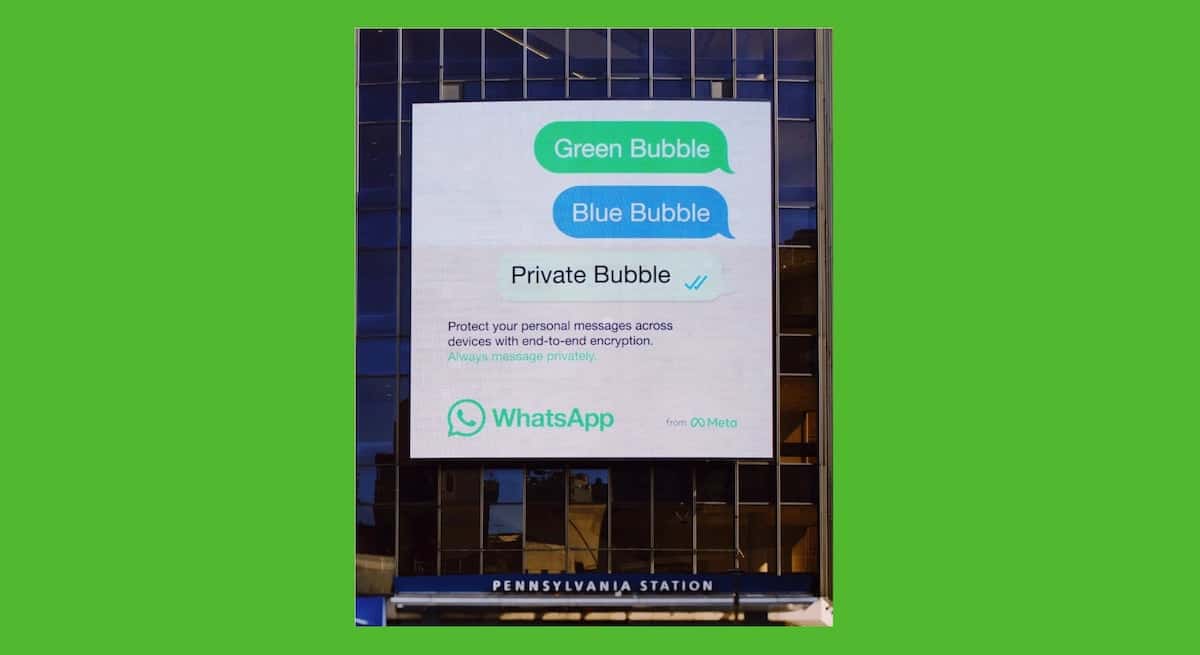WhatsApp parent company, Meta has launched a new ad campaign targeting Apple’s iMessage texting service. Touting the end-to-end encryption protection on WhatsApp, the campaign highlights that texts shared between iOS and Android are not secure.
Apple Messages app offers end-to-end encryption to iMessage users, the iOS blue chat bubble crowd but the protection is not extended to SMS, the Android green bubble crowd. Now, WhatsApp has presented itself as an alternative for users across platforms to chat in the “private bubble”.

WhatsApp inserts itself in the blue and green chat bubbles debate
Recently, Google revived the blue and green chat bubbles debate in a new ad campaign “Get the message” to pressurize Apple to adopt RCS standards to offer a rich communication experience between iOS and Android users.
Although Meta is not pushing for Apple to adopt the RCS protocol, it is marketing WhatsApp as a solution to end the disparity between blue and green chat bubbles and provide a universal rich, private, and secure messaging experience across platforms.
The subtle WhatsApp video ad “A New Era of Privacy” does not target any platform by name and communicates that SMS is not protected by end-to-end encryption. However, Meta CEO Mark Zuckerberg went beyond that and called out iMessage for not expanding end-to-end encryption to Android users.
Sharing the image of an advertisement billboard at the Penn Station in New York City on Instagram, he wrote:
WhatsApp is far more private and secure than iMessage, with end-to-end encryption that works across both iPhones and Android, including group chats. With WhatsApp you can also set all new chats to disappear with the tap of a button. And last year we introduced end-to-end encrypted backups too. All of which iMessage still doesn’t have.
Ever since Apple launched the iOS App Tracking Transparency feature, Zuckerberg has become one of the staunchest critics of the tech giant. Recently, he took a jab at the tech company’s supposed pricing strategy to charge “as much as” they can for an unannounced mixed reality headset.



